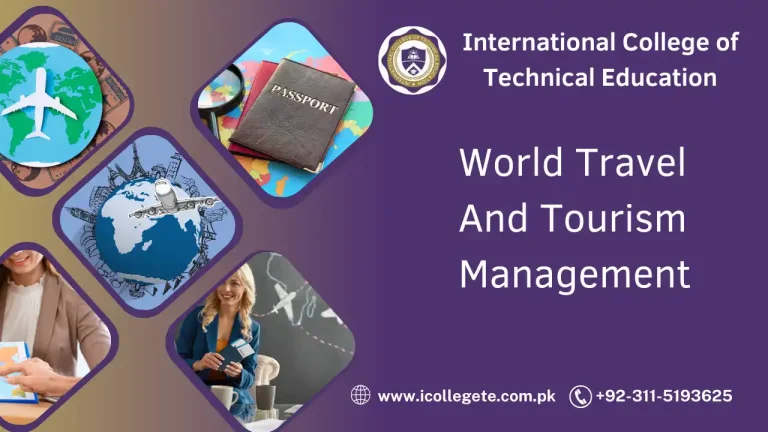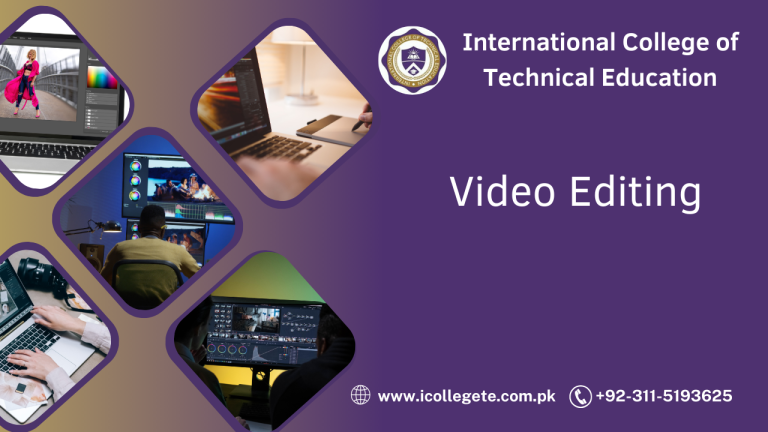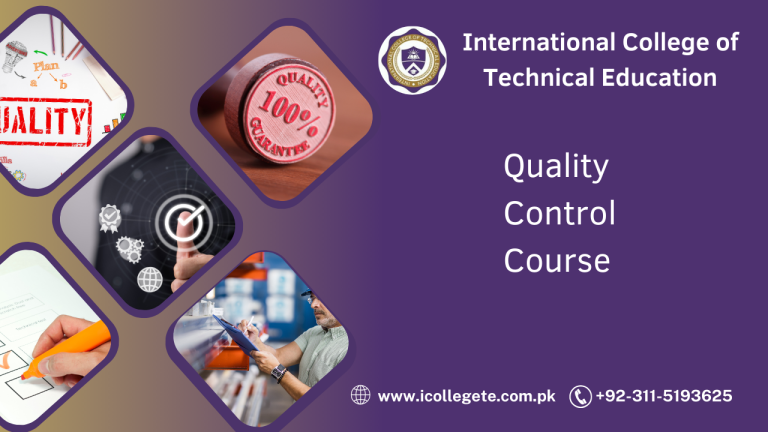In today’s dynamic business environment, effective Human Resource Management (HRM) is key to ensuring that organizations can attract, develop, and retain the best talent. As companies continue to grow, the role of HR professionals becomes more crucial in aligning human resources with business objectives. The Human Resource Management (HRM) course in Rawalpindi is designed to provide individuals with the essential knowledge and skills to manage people effectively and create a positive organizational culture.
The Human Resource Management (HRM) course in Rawalpindi is designed for those who are passionate about developing strong leadership and organizational skills in managing human capital. It offers a comprehensive overview of the strategic, operational, and administrative aspects of HRM. Participants will learn how to implement HR strategies that align with business goals while improving employee satisfaction, productivity, and overall organizational success.
Whether you are a fresh graduate or a seasoned professional looking to specialize in HRM, this course will equip you with the tools and strategies to make an impact in the HR field. Through a combination of theoretical insights and practical applications, you will gain a strong foundation in managing people effectively.
Course Overview
The HRM course in Rawalpindi is structured to provide an in-depth understanding of various HR functions, including recruitment, performance management, employee development, compensation and benefits, and labor laws. The course also emphasizes modern HR strategies, such as talent management, employee engagement, and the use of technology in HR operations.
Key areas covered in the course include:
- Introduction to HRM: Overview of HR functions, roles, and responsibilities in modern organizations.
- Recruitment and Selection: Understanding the hiring process, including job analysis, sourcing candidates, and conducting interviews.
- Performance Management: Techniques for setting goals, conducting performance appraisals, and managing employee performance.
- Employee Development and Training: Strategies for employee growth, skill development, and career advancement.
- Compensation and Benefits: Overview of salary structures, bonuses, benefits, and incentives to attract and retain top talent.
- Labor Laws and Ethics: Understanding labor regulations, compliance, and the ethical responsibilities of HR professionals.
- Employee Relations: Managing relationships between employees and employers to ensure a harmonious workplace.
- HR Technology: Exploring the use of HR software, tools, and systems to streamline HR processes.
Learning Outcomes
Upon completion of the HRM Human Resource Management course in Rawalpindi, participants will achieve the following outcomes:
- Understanding HR Functions: Grasp the core functions of HRM, including recruitment, performance management, training, and compensation.
- Strategic HR Practices: Learn how to align HR practices with business goals, driving organizational success.
- Effective Recruitment Techniques: Master the recruitment and selection process, from creating job descriptions to conducting interviews and hiring top talent.
- Employee Development Skills: Understand how to design and implement employee training and development programs that enhance skillsets and career growth.
- Compensation Strategy Knowledge: Learn how to create competitive compensation packages that motivate and retain employees.
- Labor Law and Compliance Expertise: Gain an understanding of labor laws and ethical issues in HRM, ensuring compliance with relevant regulations.
- HR Technology Integration: Learn how to integrate HR technology into processes to streamline operations and improve efficiency.
Study Units
The HRM course is divided into several study units that cover various aspects of human resource management. The units are designed to provide participants with both theoretical knowledge and practical skills. These units include:
- Unit 1: Introduction to Human Resource Management
- Definition, history, and evolution of HRM
- Key HR functions and their role in organizational success
- Unit 2: Recruitment and Selection
- Job analysis and job descriptions
- Sourcing candidates and recruitment methods
- Interview techniques and selection processes
- Unit 3: Performance Management
- Setting SMART goals for employees
- Techniques for performance appraisal and feedback
- Managing underperformance and fostering a high-performance culture
- Unit 4: Employee Training and Development
- Importance of continuous learning and skill development
- Designing effective training programs
- Career development and succession planning
- Unit 5: Compensation and Benefits
- Structure of compensation and salary systems
- Designing competitive benefit packages
- Employee incentives, bonuses, and recognition programs
- Unit 6: Labor Laws and Ethics
- Overview of labor laws and employee rights
- Ensuring compliance with national and international regulations
- Ethical dilemmas in HR and responsible decision-making
- Unit 7: Employee Relations and Engagement
- Building a positive organizational culture
- Conflict resolution strategies
- Employee engagement and retention strategies
- Unit 8: Technology in HR
- HR software and systems (HRIS, payroll, recruitment tools)
- Using technology to enhance HR functions
- The future of HR with Artificial Intelligence and data analytics
Course Benefits
The HRM Human Resource Management course in Rawalpindi offers several benefits for individuals seeking a career in HR or those looking to advance in their current HR roles:
- Career Advancement: A qualification in HRM opens up diverse career opportunities, from HR manager to recruitment specialist, compensation analyst, and employee relations consultant.
- Practical Skills: This course provides hands-on knowledge and practical strategies for managing human resources in real-world scenarios.
- Improved Organizational Effectiveness: Learn how to align HR strategies with organizational goals, which can lead to enhanced productivity and employee satisfaction.
- Increased Job Opportunities: With HR professionals in high demand, this course equips you with the necessary skills to enter or advance in the HR field.
- Compliance and Legal Expertise: Understand labor laws and ethical considerations in HRM, ensuring that your organization remains compliant and fosters a fair working environment.
- Leadership Development: Learn how to become a strategic HR leader capable of making impactful decisions that drive organizational success.
Who is This Course For?
The HRM course in Rawalpindi is suitable for a wide range of individuals who are interested in pursuing a career in Human Resource Management or those looking to upskill in their current HR roles. The course is ideal for:
- Aspiring HR Professionals: Individuals looking to start their career in HRM, either in generalist or specialized roles.
- Current HR Employees: Professionals working in HR departments who want to enhance their knowledge and skills to take on more responsibilities.
- Managers and Team Leaders: Business managers who need to understand HR practices to manage their teams effectively.
- Entrepreneurs and Business Owners: Those running small or medium-sized enterprises (SMEs) who want to develop HR policies that enhance employee productivity and retention.
- Graduates and Job Seekers: Those with a background in business, psychology, or management who are looking to enter the HR field.
- HR Consultants: Professionals providing HR services who want to expand their expertise in areas such as training, recruitment, and performance management.
The Human Resource Management (HRM) course in Rawalpindi offers a comprehensive and practical approach to mastering HR functions, from recruitment to employee relations. This course is ideal for anyone looking to pursue a successful career in HR or for professionals who wish to enhance their expertise in managing human resources strategically. By the end of the course, you will be equipped with the knowledge and skills to contribute to the growth and success of any organization, making you a valuable asset in today’s competitive job market.







